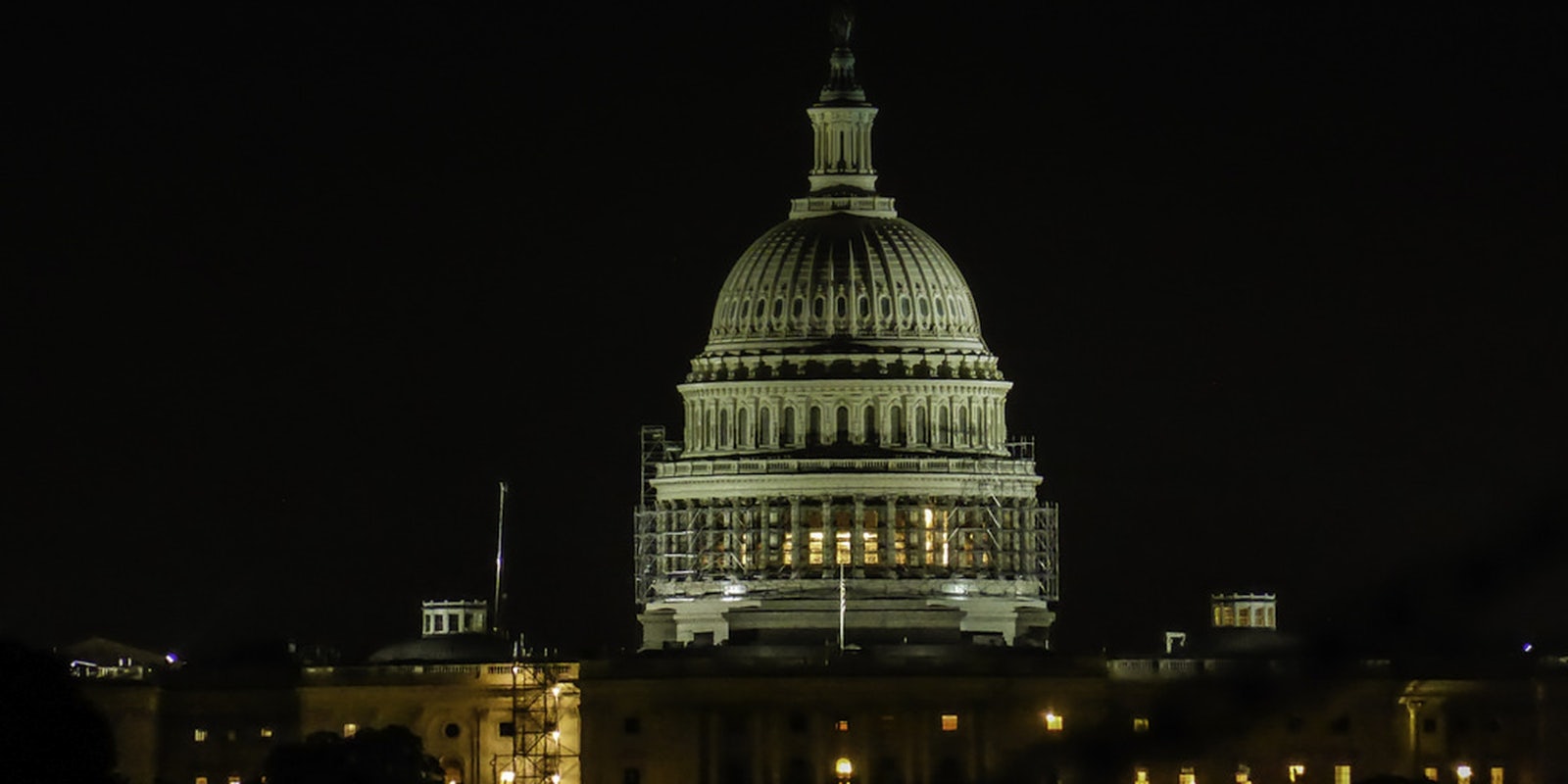The House committee that has repeatedly blessed the NSA‘s mass surveillance initiatives is taking a second look at one of those programs after revelations that the agency accidentally spied on lawmakers.
A Wall Street Journal story published Tuesday evening revealed that, in the process of spying on Israeli Prime Minister Benjamin Netanyahu and his government, the National Security Agency had collected conversations between Israeli officials and members of Congress.
“Wary of a paper trail stemming from a request [to see certain communications involving lawmakers],” the Journal reported, “the White House let the NSA decide what to share and what to withhold, officials said.”
In a statement on Wednesday, Rep. Devin Nunes (R-Calif.), the chairman of the House Intelligence Committee, said that his committee was “looking into allegations… regarding possible Intelligence Community (IC) collection of communications between Israeli government officials and Members of Congress.”
“The Committee has requested additional information from the IC,” Nunes said in the statement, “to determine which, if any, of these allegations are true, and whether the IC followed all applicable laws, rules, and procedures.”
While President Obama shut down NSA surveillance of some foreign heads of state after several damaging leaks, he quietly allowed the spy agency to continue tapping Netanyahu’s calls and emails. NSA monitoring of Israeli officials intensified as the U.S. negotiated a nuclear deal with Iran. U.S. officials first wanted to know if Israel had discovered the secret talks; once the deal was made public, they wanted to know how Israel was lobbying against congressional approval of the deal, which was necessary for the U.S. to remain involved.
It was in the process of monitoring Israel’s campaign against congressional approval that the surveillance program intercepted calls between Israeli officials and members of Congress. (The surveillance also picked up conversations between Israeli officials and Israeli-American groups trying to defeat the deal.)
Surveillance reformers were quick to pounce on Nunes’s statement. They argued that it exposed the hypocrisy of a committee that quickly and repeatedly approved controversial, far-reaching surveillance programs and only investigated potential misbehavior when it affected them.
“Devin Nunes, who has NEVER ONCE voted [against] incidentally collecting [Americans’ communications], now objects when he is collected,” tweeted independent journalist Marcy Wheeler.
Confused intelligence committee opens investigation into surveillance it authorized. https://t.co/AjYTCIkVfa pic.twitter.com/pNFMvCYjh0
— Jameel Jaffer (@JameelJaffer) December 30, 2015
As the @WSJ report on the NSA shows, NSA defenders in Congress only care about privacy when their own is violated. https://t.co/qJhk3tvaHU
— Trevor Timm (@trevortimm) December 30, 2015
https://twitter.com/csoghoian/status/682276031579815936
The U.S. government can spy on foreigners abroad without a warrant, but in the process of doing so, it often incidentally collects data on Americans. Federal law requires the NSA to “minimize the acquisition and retention, and prohibit the dissemination,” of those accidentally collected records. But the agency can still query its database using Americans’ names, effectively creating a loophole in the legal process of electronically gathering and reading Americans’ data.
Activists who believe that the NSA’s “minimization” techniques are largely inconsequential used the House committee’s announcement to press their point. But Bradley Moss, a lawyer who specializes in national-security work, pointed out that the procedure had removed the names of lawmakers and aspects of their conversations not deemed pertinent to the program’s goals.
The newly revealed NSA activities could become campaign fodder in the 2016 presidential election. The Republican debates have pitted Sen. Ted Cruz (R-Texas) against Sen. Marco Rubio (R-Fla.) over their opposing votes on a surveillance-reform bill that reined in an NSA program. Cruz supported reform, while Rubio opposed it. Neither candidate’s campaign responded to requests for comment.
Sen. Rand Paul (R-Ky.), the most vocal civil-liberties advocate in the 2016 race, said on Wednesday morning that he was “appalled” by the revelations.
“You can see how we stifle speech if you’re going to eavesdrop on congressmen, and that it might stifle what they say or who they communicate with,” Paul said in an interview on Fox & Friends. “We absolutely need more controls on the NSA and more controls on our intelligence agencies.”
Photo via Jeff Turner/Flickr (CC BY 2.0)


